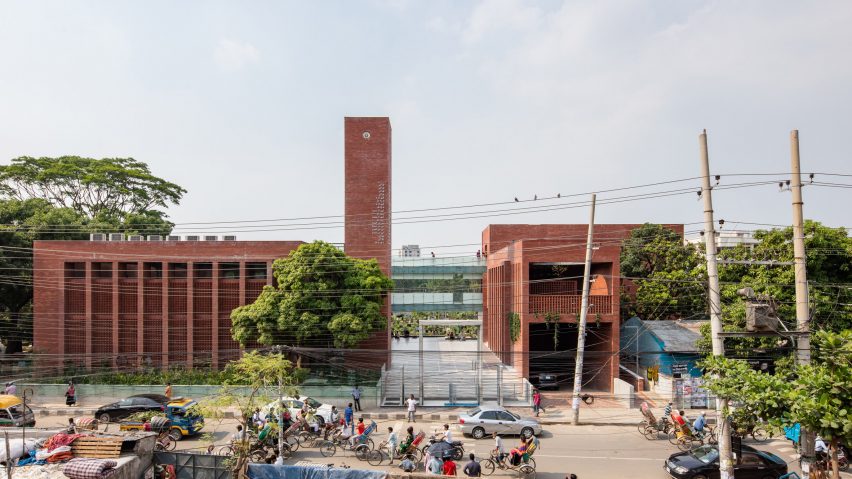
Shatotto creates brick mosque in Dhaka to "connect the celestial and terrestrial in a poetic way"
Architecture studio Shatotto has completed the brick Mayor Mohammad Hanif Jame Mosque in Dhaka, Bangladesh.
Built between a main road and the large Azimpur graveyard, the mosque in the Bangladeshi capital city was designed to be a transition space between the busy and calm environments.
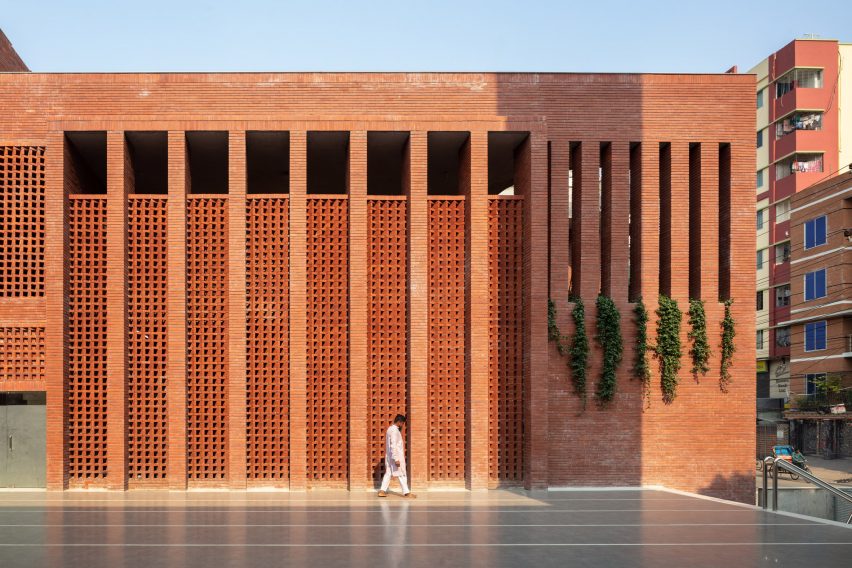
"The philosophy behind any mosque is to create a space for prayer, reflection and repentance," explained lead architect at Shatotto Rafiq Azam.
"Mayor Mohammad Hanif Jame Mosque creates a space that acts as a threshold between the chaotic frenzy of life and the serene certainty of death," he told Dezeen. "The project's aim is to connect the celestial and terrestrial in a systematic and poetic way."
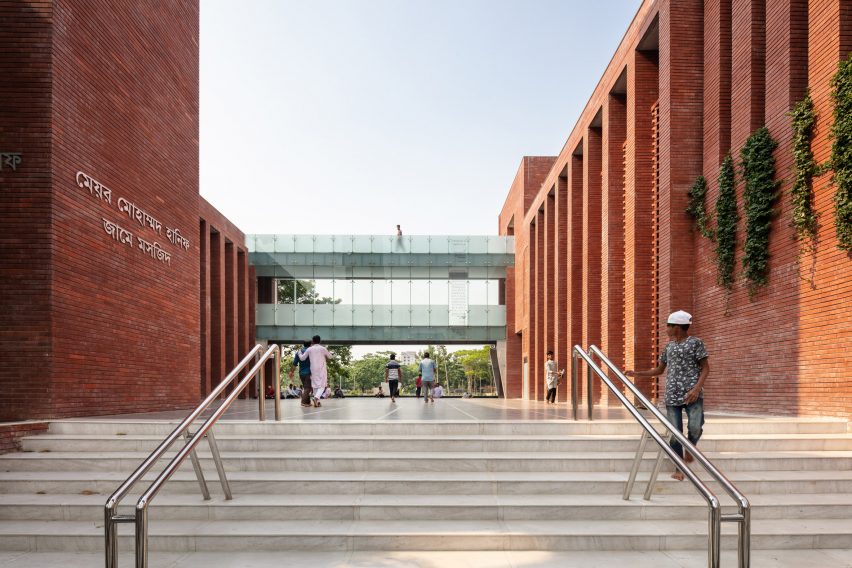
The mosque is split into two brick masses on either side of an open-air prayer space known as a sahn.
On one side is the two-story male prayer hall, while the women's prayer hall, toilets and ablution spaces for men and women, as well as the Imam's room, are located on the other. A bridge connects the two sections on the first floor.
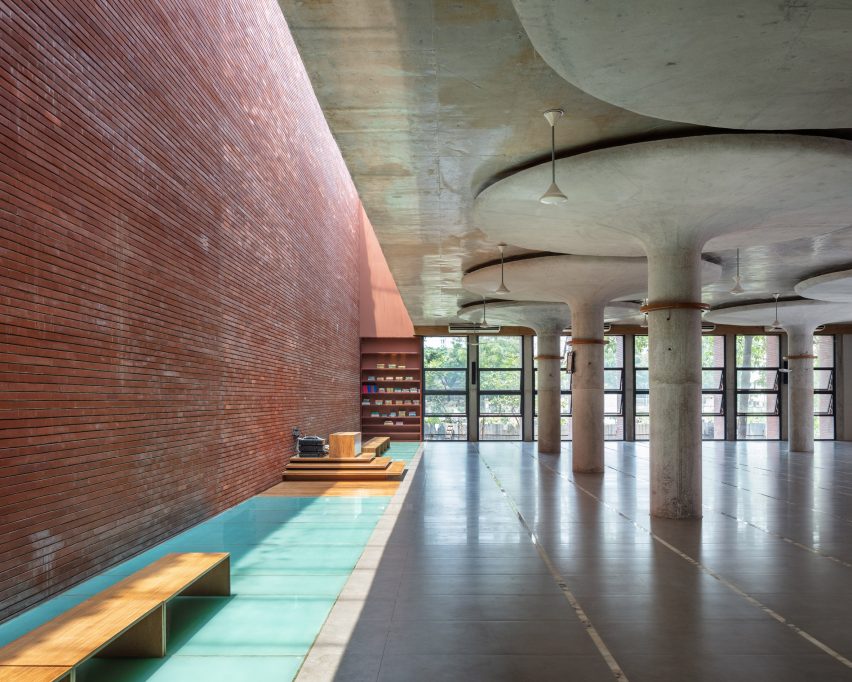
"The concept of the mosque was to create a transparent window between the two lives, the earthy materialistic life and the celestial life once our soul lives our body," said Azam.
"The mosque acts like a window which provides view of both sides, the street on the south overviews the busy life of the living, whereas the north side gives a glimpse of the resting place of the dead."
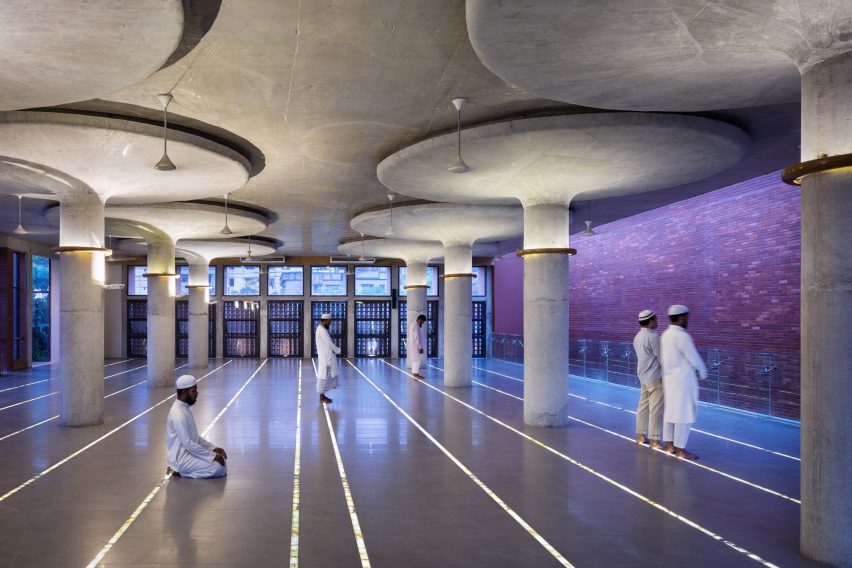
Throughout the project, the architecture studio aimed to combine historical forms with contemporary elements. The distinct mushroom-shaped concrete columns in the main prayer halls is an example of this.
"It serves as a departure from traditional mosques in both physical and philosophical designs, combining old and new ideas into a contemporary concept," explained Azam.
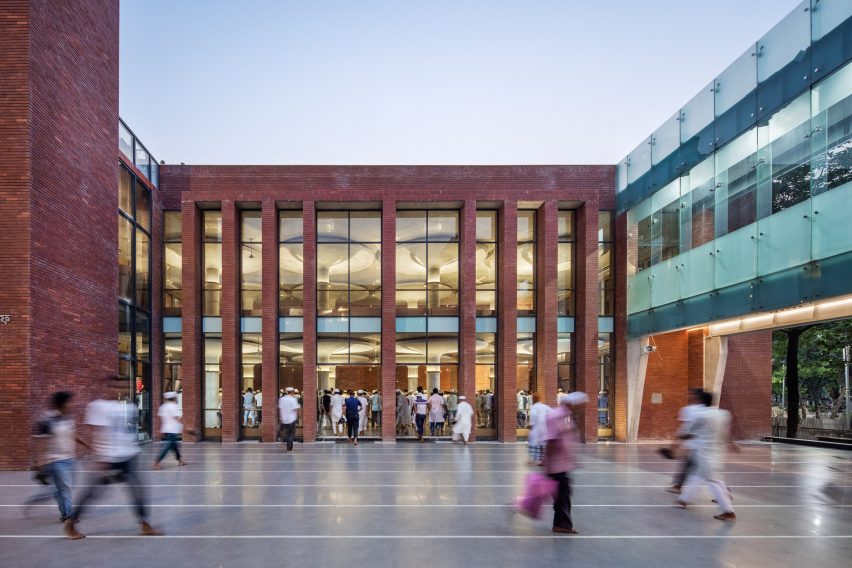
"Instead of traditional cylinders, these columns are shaped like trees with trunks that expand into cement canopies holding up the slabs above them, creating a forest-like environment," he continued.
"This indoor forest features a mix of natural and artificial lighting catered towards creating an elevating experience."
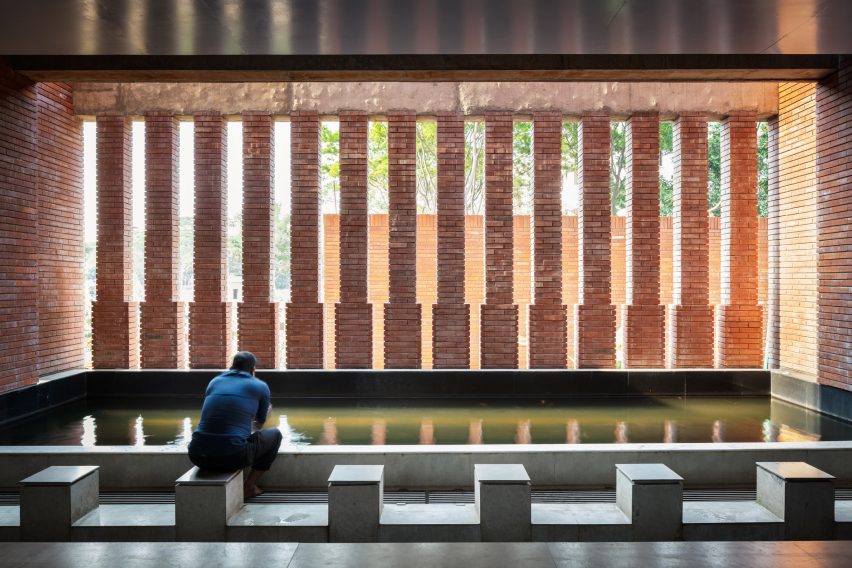
Azam pointed to the ground floor ablution spaces and the minaret, which is rectangular to incorporate a lift, as other areas that combine the historic and the modern.
Building the mosque from brick was also a move to draw on historic precedents, including the Shah Mosque at the Lalbagh Fort in the southwest of the city.
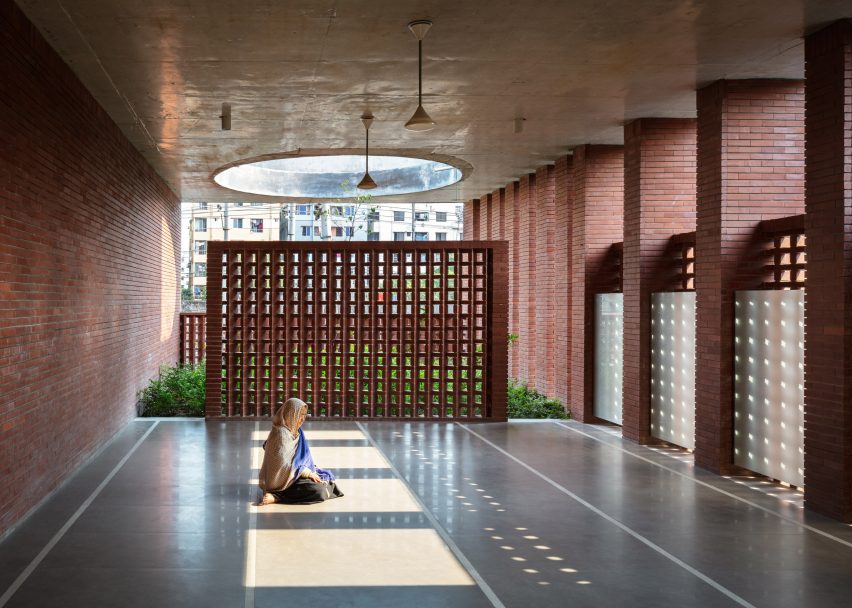
"Drawing inspiration from the pre-Mughal mosques, the architecture of Mayor Mohammad Hanif Jame Mosque aims to create a connection with history," said Azam.
"The materials used to build the mosque reiterate the same. As seen in most historic mosques in this region, burnt brick is the material used for almost all the structures, sometimes clad with terracotta tiles to add variation in design," he continued.
"Even though the idea of building the mosque from brick is generated from historical reference, a clean, contemporary rendition of brickwork can be seen in the Mayor Mohammad Hanif Jame Mosque."
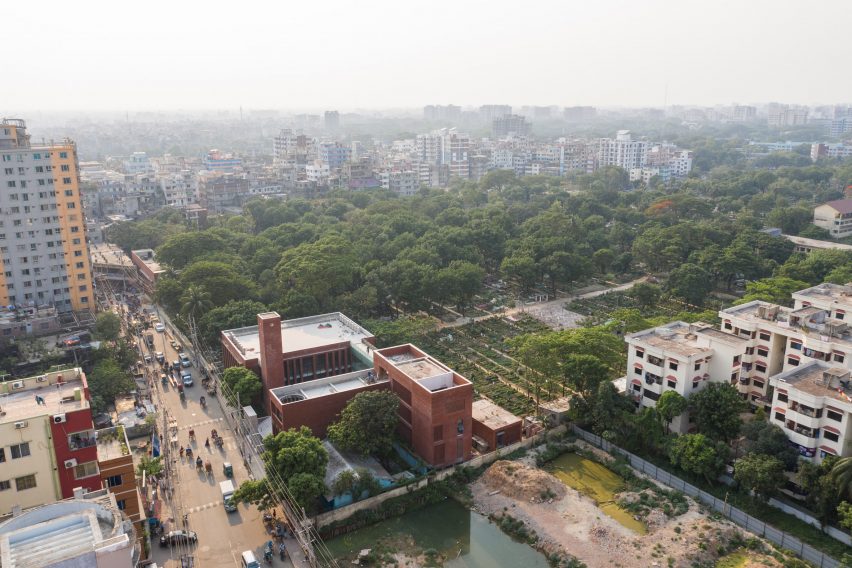
Previously in Dhaka, Marina Tabassum created a mosque with perforated brickwork to allow light and air to reach the main prayer hall, while Candalepas Associates created a space for 300 worshippers topped with a decorative concrete-vaulted roof in Sydney.
Photography is by Mike Kelley.